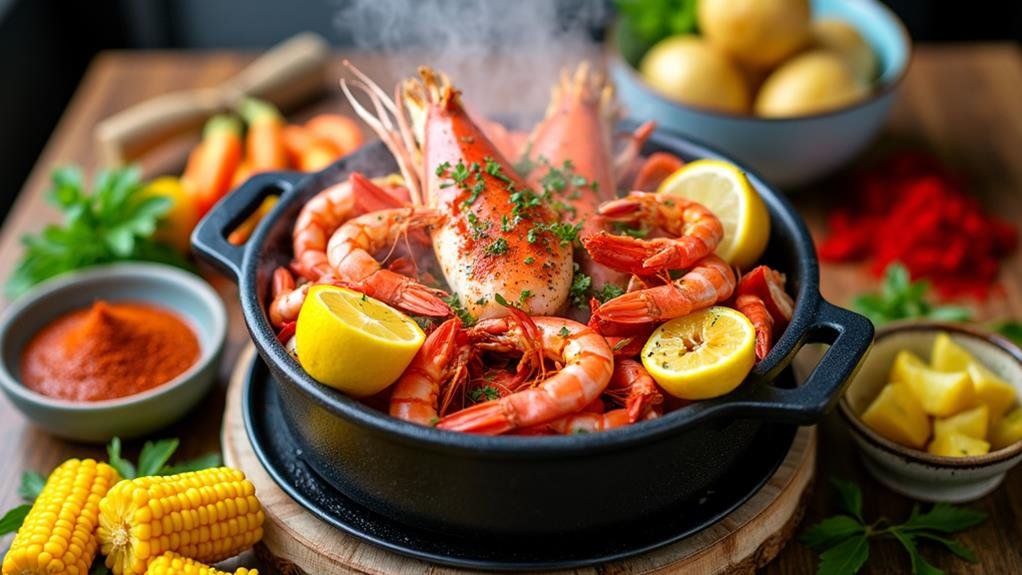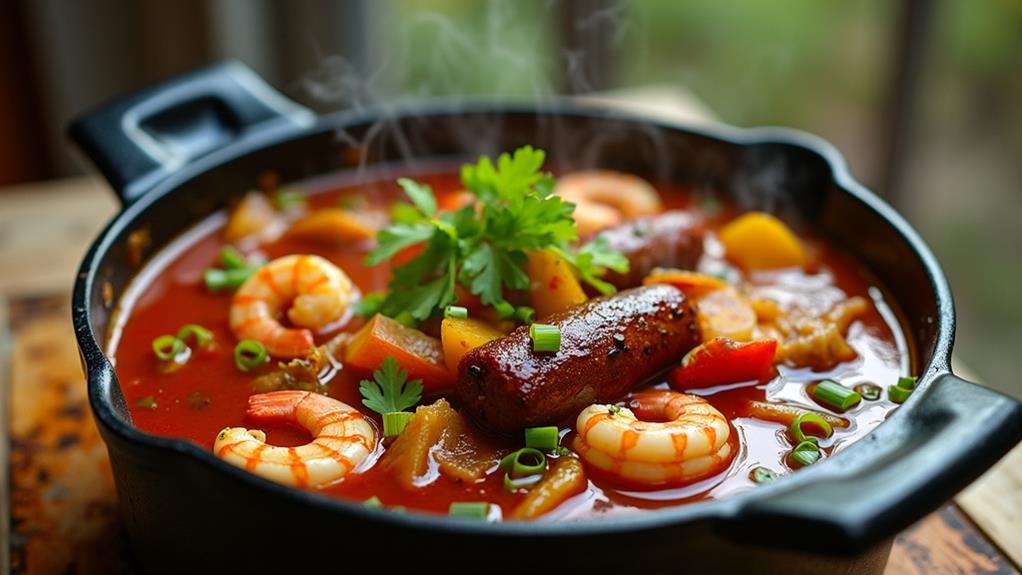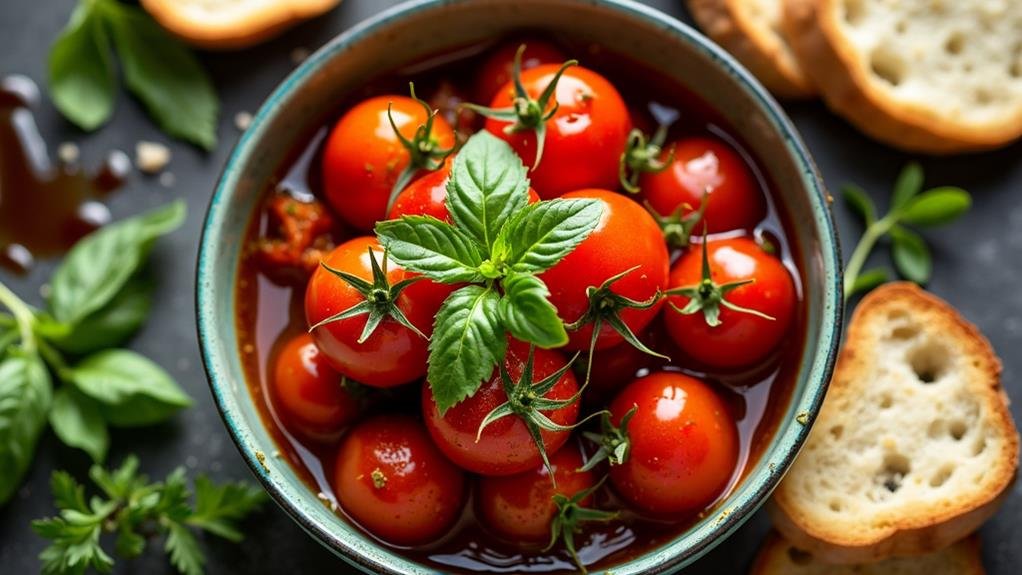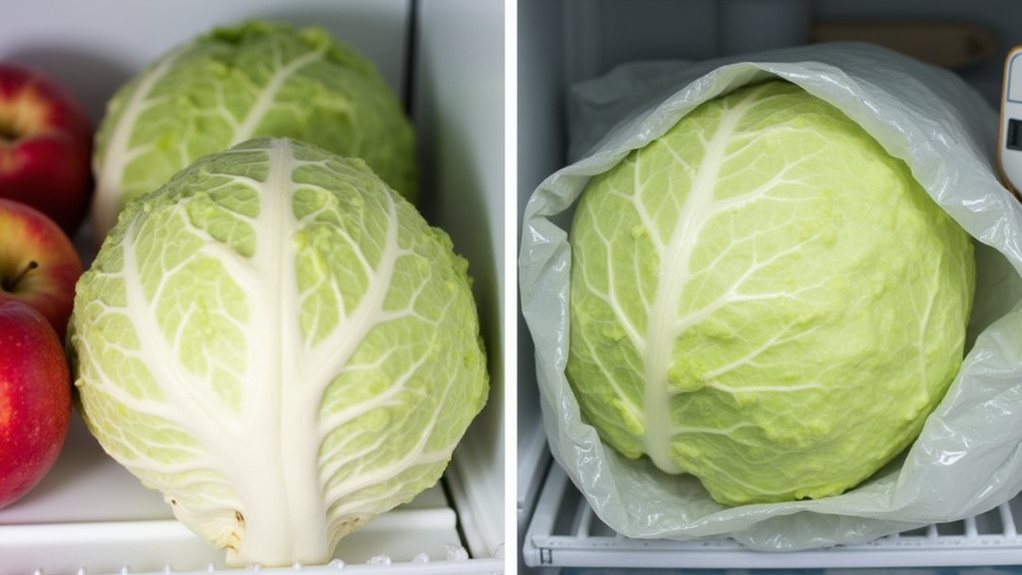To update canned vegetables, consider incorporating Hollandaise sauce, known for its creamy texture and rich flavor. This sauce is made from butter, egg yolks, and lemon juice, contributing a delightful balance of sweetness and tartness. When drizzled over canned green vegetables, it softens inherent bitterness while cutting through excess saltiness. The luxurious essence of Hollandaise lifts simple veggies, making them suitable for gourmet dining. Techniques such as whipping vigorously and controlling temperature will improve your sauce-making skills. Explore different applications, as this versatile sauce can refine not only vegetables, but also seafood and pasta, enriching your culinary experience. Insights into preparation await you.
Benefits of Canned Vegetables

Many home chefs neglect the advantages of canned vegetables, which serve as a budget-friendly pantry essential. These versatile ingredients provide a practical solution for individuals seeking to keep a well-stocked kitchen without overspending. Canned vegetables, such as Del Monte green beans or Libby's corn, retain much of their nutritional value, making them an excellent alternative to fresh produce. They offer convenience, boasting a long shelf life that minimizes food waste and facilitates spontaneous meal preparation.
Incorporating canned vegetables into your recipes is an easy way to enhance both flavor and nutrition. With a wide range of options available, from diced tomatoes to mixed vegetables, these items seamlessly adapt to various dishes. Additionally, they serve as an excellent foundation for culinary techniques, especially when paired with gourmet sauces like Knorr hollandaise, which can elevate even the simplest meals.
For home chefs eager to explore flexibility in their cooking endeavors, canned vegetables offer an accessible path to discovering new taste experiences. By embracing these pantry staples, anyone can create nutritious and delicious meals with ease. Ultimately, recognizing the benefits of canned vegetables can inspire cooks to innovate and experiment in the kitchen, resulting in satisfying dining experiences.
Why Hollandaise Sauce Matters
Hollandaise sauce stands as a fundamental element in gastronomy, elevating mundane meals into remarkable culinary experiences with its luscious, buttery taste and velvety consistency. This adaptable sauce transcends simple condiment status; it is crucial in enriching the complete dining affair. Recognizing its importance can significantly enhance your culinary endeavors.
Here are four reasons why hollandaise sauce is essential:
- Taste Enhancement: It boosts the flavor profile of unseasoned ingredients, transforming even basic dishes into delightful offerings.
- Basic Components: Made primarily from premium butter, fresh egg yolks, and zesty lemon juice, it exemplifies the elegance of minimalist cooking.
- Flavor Harmony: The natural sweetness of butter combined with the tartness of lemon juice creates a balanced flavor, making it perfect for complementing various vegetables.
- Culinary Expertise: Perfecting hollandaise sauce can refine your overall cooking skills, as it demands accuracy and focus, providing an enriching culinary challenge.
How Hollandaise Enhances Canned Veggies

Canned vegetables are a practical and cost-effective choice, but they often miss the lively flavors of fresh produce. Hollandaise sauce, known for its creamy and buttery essence, provides an excellent way to elevate these pantry staples. By adding this sauce, you can turn plain veggies into a delicious dish that excites the taste buds.
The simple components of hollandaise—primarily Land O'Lakes butter and fresh lemon juice—combine beautifully to enhance the flavor of canned vegetables. The butter contributes a velvety consistency while softening any bitterness from green vegetables like green beans or spinach. The tanginess of lemon juice introduces a zesty brightness, cutting through the richness and lifting the overall taste.
Additionally, canned vegetables can often contain high sodium levels, which may dull their natural flavors. Hollandaise sauce can balance this saltiness, creating a harmonious mix of tastes. This sauce complements the unique qualities of the vegetables, allowing their distinct flavors to emerge.
Tips for Making Hollandaise Sauce
Creating a perfect hollandaise sauce can be a rewarding culinary adventure, especially when elevating the taste of canned vegetables. This rich sauce, while delightful, can be notoriously tricky to perfect. Here are some essential tips to help you master it:
- Whisk Vigorously: When mixing the egg yolks and melted butter, whisk energetically over a low flame. This prevents the eggs from scrambling and ensures a smooth, velvety texture.
- Temperature Control: Monitor the heat closely. Excessively high temperatures can cause curdling, while too low can hinder proper emulsification. Strive for a gentle warmth.
- Use a Blender: If traditional whisking seems daunting, consider using a high-speed blender. This appliance allows for easier emulsification and consistent texture, simplifying the process.
- Practice Patience: Crafting hollandaise requires time and patience. Allow yourself to explore without haste, learning from any missteps along the way.
Creative Ways to Use Hollandaise

Hollandaise sauce, often linked with eggs Benedict, serves as a versatile condiment for various dishes. This creamy, buttery blend enriches flavors and textures, making simple sides feel gourmet. For example, it pairs wonderfully with green vegetables like asparagus and broccoli, enhancing their natural tastes while adding a sumptuous depth.
This sauce isn't limited to vegetables; it also elevates seafood dishes. Poached salmon or grilled halibut, for instance, benefit from the sauce's zesty lemon juice, which balances the fish's richness and creates a delightful culinary experience. Additionally, hollandaise can transform breakfast favorites. Imagine drizzling it over a savory hash made with Yukon Gold potatoes or even on an artisan avocado toast for a fresh twist.
For pasta enthusiasts, hollandaise can be a luxurious sauce, offering a creamy texture that complements various ingredients like fettuccine or penne. Lastly, don't underestimate its potential in soups; a dollop of hollandaise can add a rich, velvety element to a vegetable medley soup, enhancing each bite with flavor. With these inventive applications, hollandaise sauce transforms everyday meals into extraordinary culinary creations.










